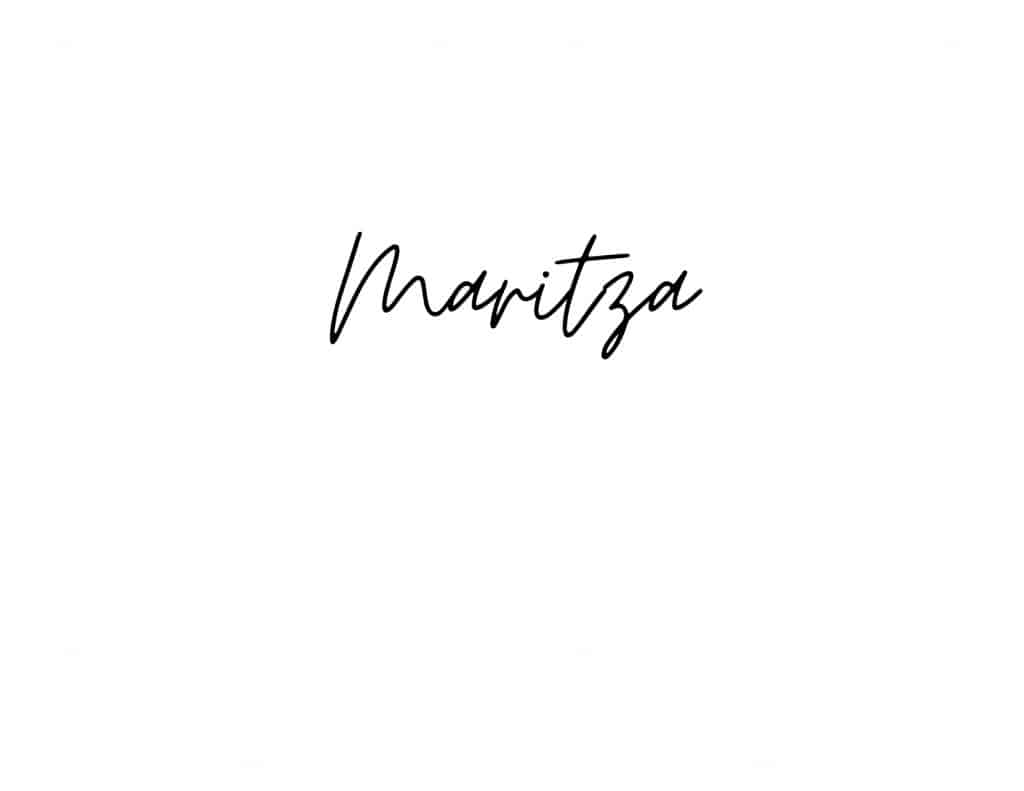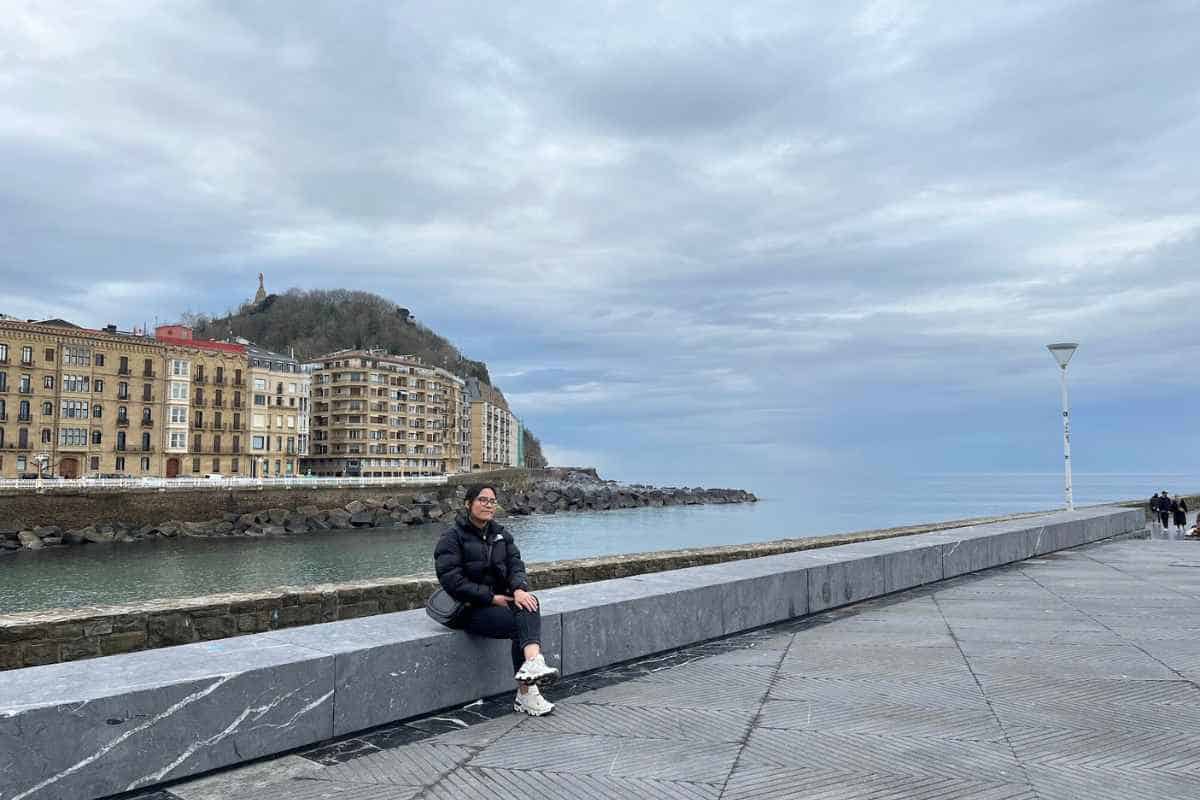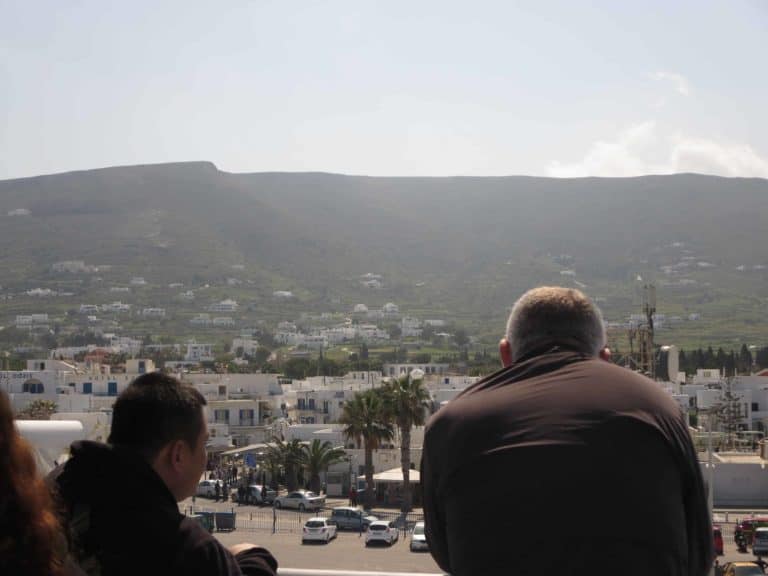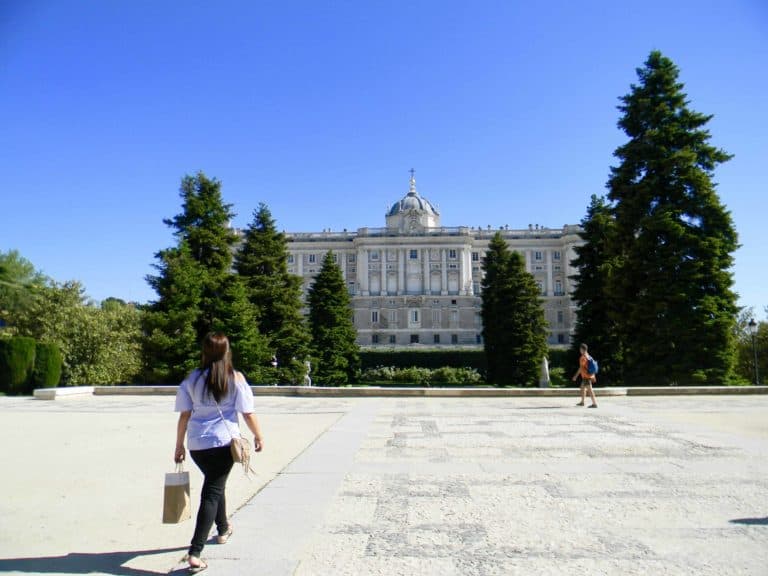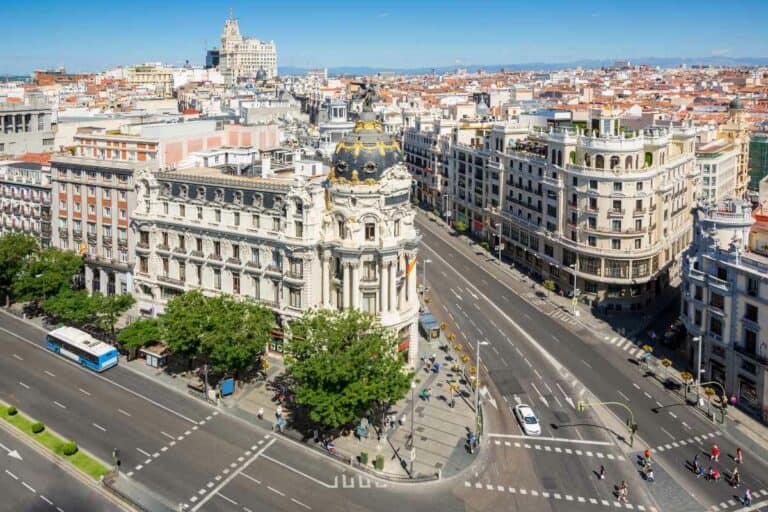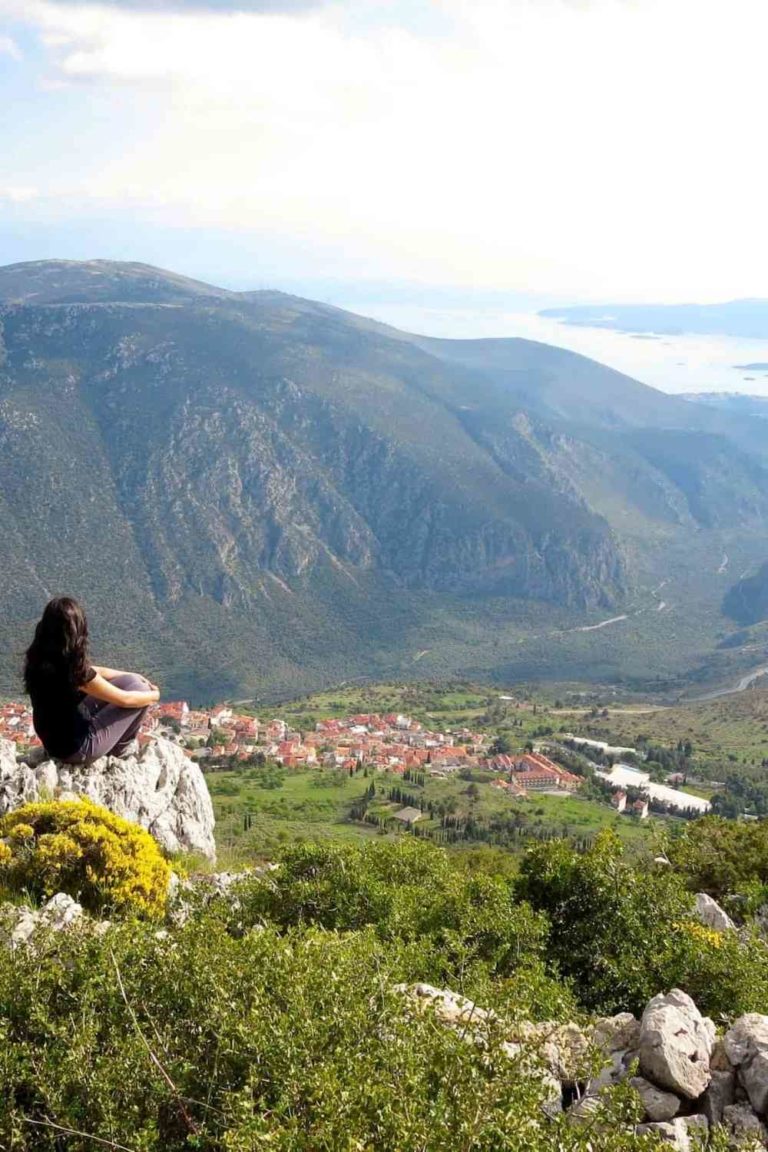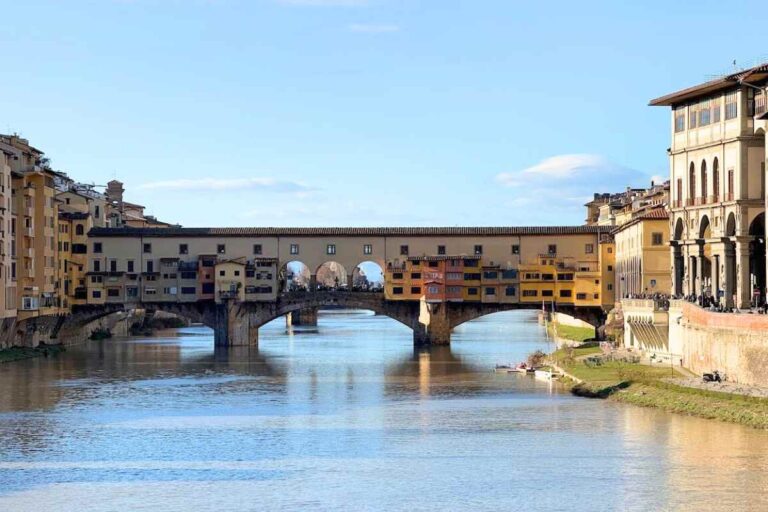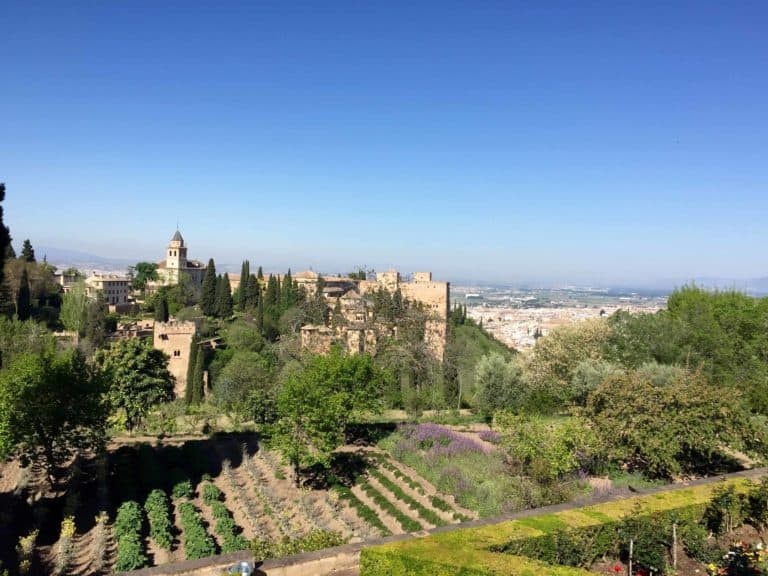What is Reverse Culture Shock? Signs, Symptoms, and How to Cope

What is reverse culture shock? Simply put, it’s the emotional and psychological disorientation you feel when you return home after spending time abroad.
And let me tell you, after traveling for over 10 years, studying abroad in Greece, living abroad in Spain, and returning home over and over again, I’ve felt it deeply.
This blog post has been a decade in the making, pulled straight from my own ups, downs, and lessons.
I’m sharing it all here in hopes of helping you reshape reverse culture shock from something to “get over” into something that will actually guide you to keep expanding, not shrinking back into an old life that no longer fits (or parts of it).
Reverse culture shock hits when the person you uncover abroad doesn’t slip neatly back into your old routines. Does that sound familiar?
You’ve expanded. Rediscovered parts of yourself in the sights, feelings, and actions you took while traveling. You’ve seen new ways of living, and you’ve stretched your comfort zone.
And now? Coming home can feel awkward, frustrating, or just plain confusing. It’s definitely not what it used to be. Or is it?
In this post, I’m going to walk you through the 5 stages of reverse culture shock I personally experienced, the common signs and symptoms to watch out for, and (most importantly) how to navigate this moment with intention and care.
So if you’re feeling like you’ve outgrown the old version of you, keep reading, friend. We’re unpacking this together!
Before we dive deeper, I want to add: This blog post is based solely on my lived experience as a traveler with over 10 years of travel and returning-home cycles. It’s not medical advice. If you’re experiencing intense or debilitating mental or emotional distress, please reach out to a licensed mental health professional.
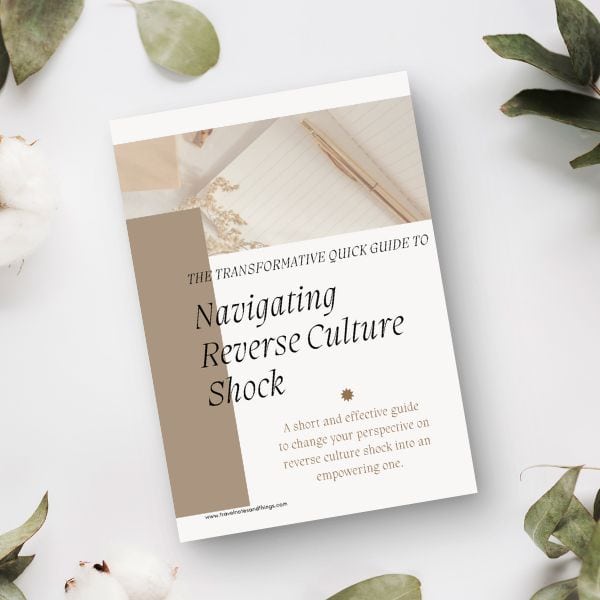
The Transformative Quick Guide To Navigating Reverse Culture Shock
- What Reverse Culture Shock Really Is
- The 5 New and Empowering Stages of Reverse Culture Shock
- Self-Reflection Prompts to Help You Grow
- Simple Self-Care Practices
- Actionable Goal-Setting Strategies
Reverse Culture Shock Meaning

Simply speaking, reverse culture shock, sometimes called re-entry shock, is the emotional and psychological disorientation we experience when we return home after spending time abroad.
I like to think of it as the lesser-known cousin of culture shock, but it can hit just as hard, sometimes harder.
And oddly enough, we don’t talk about it enough!
Why does it hit harder?
Well, when you first go abroad, your senses become heightened.
Everything is new. You have to adapt, learn, and think in different ways than you would at home. The expectation, typically when returning home, is that things will be the same, and that you’ll be the same too.
But that’s the catch. You’re not. How could you after seeing different scenery, meeting different people, and observing a different way of life, even for a little while?
When I returned from studying abroad in Greece, I remember feeling so off the first morning. Not only did I feel annoyed that I wasn’t in Greece anymore, but integrating myself back into home life proved to be more difficult than I expected.
I felt like I had lived such a different life while studying in Greece, from the food to relying on my senses and parts of my brain that I typically didn’t have to back home, because living life in my comfort zone at home was automatic.
Also, I realized just how much stuff I had, especially when I had just lived out of a small suitcase for 3 months, just fine.
It felt like there was a version of me before this trip to Greece, and one after, and I didn’t want to go back just because I was physically back home.
I loved what I had learned about myself while abroad, and the burst of energy and love for life and travel I had just gained. It was too much to try to make myself go back.
So, whether you’ve just wrapped up a semester studying abroad, returned from a volunteer program, or spent years living abroad in another foreign country, that shift you feel reentering your home country is real, normal, and we’ll finally discuss it more here.
The 5 Common Reverse Culture Shock Stages (My Version)
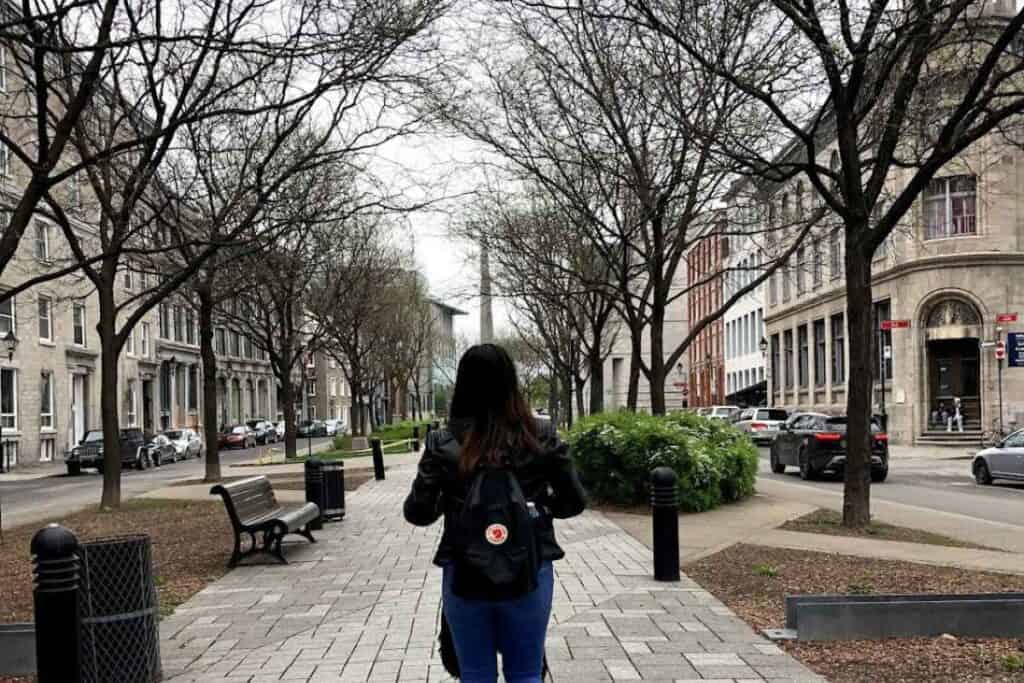
I know you’ve probably seen online that the common rhetoric among reverse culture shock is “how to bounce back from reverse culture shock” or “how to get over reverse culture shock,” etc.
But what if we don’t want to get over reverse culture shock?
Not because we like all the emotions that come with it 🤪 but because there’s something important to uncover there?
This is why I decided to create my list of the 5 common reverse culture shock stages, based on my experience, of course, that I hope will help you manage and process this transformative ride back home in a different light.
The Honeymoon Stage
This is the initial excitement of coming home, including seeing family, eating comfort foods, and enjoying familiar comforts.
Everything feels great! For a little while, until you start to feel a bit restless.
The Frustration or Discomfort Stage
Once the glow fades, you feel bored or disconnected with life back home.
Conversations feel shallow, routines feel limiting, and you realize you can’t “unsee” the growth you experienced abroad.
Everything from the walks around your city abroad, to the food you ate on the daily, and your routine that represented a version of you that felt perhaps more free, living life at a different, relaxed pace, and seeing a different way of life you didn’t know existed before, and now you’re questioning everything now that you’re out of that.
Ah, yes, that part.
Self-Analyzing
This is the deep dive when you start asking yourself what changed?
What new ideas, perspectives, or values did you gain from your travels?
What parts of home no longer fit?
This is “the work” that will essentially pivot you to make the change you’re craving post-travel, and guess what? It’s different for everyone!
This is why there is no one way to “bounce back” or “get over reverse culture shock.”
Even if you wanted to do that, everyone’s process will look a bit different because we all see and experience things differently.
So grab your notebook and get ready to ask and answer these questions.
Goal Setting and Action
Instead of forcing yourself to readjust, you begin setting intentional goals to integrate your new self into daily life.
From something as “small” as a new way of doing your laundry (ditching the dryer and air drying everything) to changing your eating habits, or even completely changing your career for a remote one so you can travel more often (like me with this blog).
You decide how home (and life) can adjust to you. And how you go about that.
Adjusting Into Your Post-Travel Self
It’s time to embrace the new version of yourself and begin living out your lessons, aligning your daily life with who you’ve become, not who you used to be at home.
Now you know that no, there isn’t something to bounce back from or get over. You now know what your reverse culture shock was keeping wrapped up for you to uncover, and continue the lessons from your travels at home.
Whether it’s a big or small change, it’s the antidote to bringing you closer to comfort as you navigate home life with the changes and improvements you gained while traveling.
Even if that’s mindset alone. Which is huge.
Reverse Culture Shock Symptoms and Common Signs
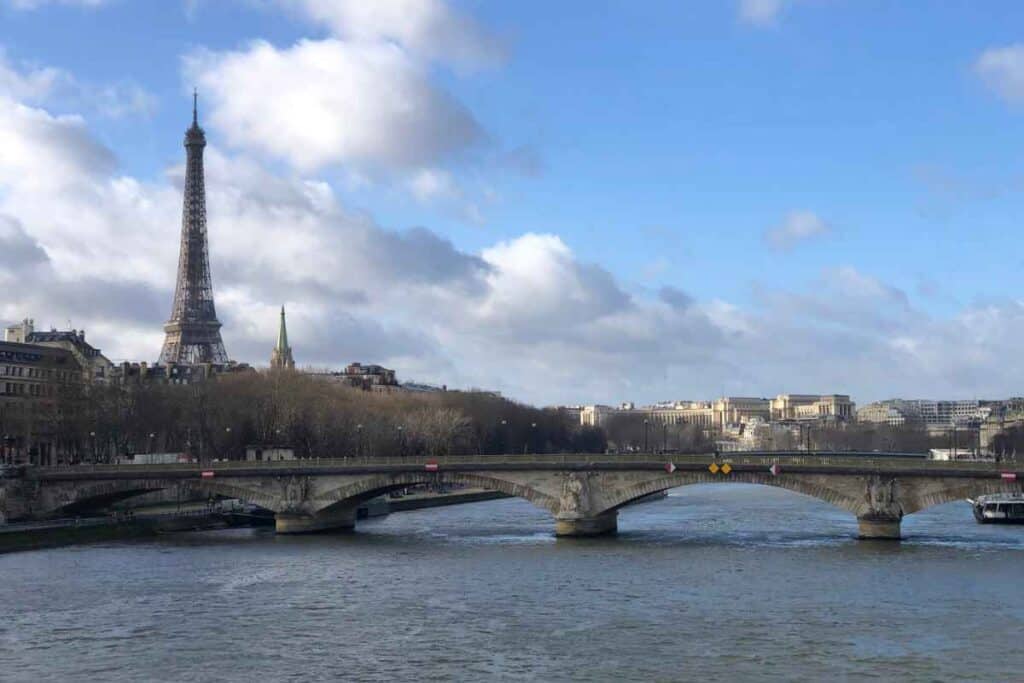
Reverse culture shock symptoms show up differently for everyone, but here are some common experiences:
- Emotional: Sadness, irritability, unexpected grief, apathy, unmotivated.
- Mental: Trouble focusing, boredom, identity confusion.
- Social: Feeling misunderstood, disconnected from friends, difficulty expressing your experience because you don’t want to come off as if you’re bragging about your travels, etc.
- Physical: Exhaustion, tension, disrupted sleep, or appetite.
A few more things you may notice:
- Longing to return to the foreign country you just left.
- Planning another trip or researching programs to do abroad.
- Criticism or frustration toward your home country or culture (it happens to all of us).
- A sense that your old routines in daily life feel boring.
And these feelings are totally valid.
How to Cope (Without Minimizing Your Growth)
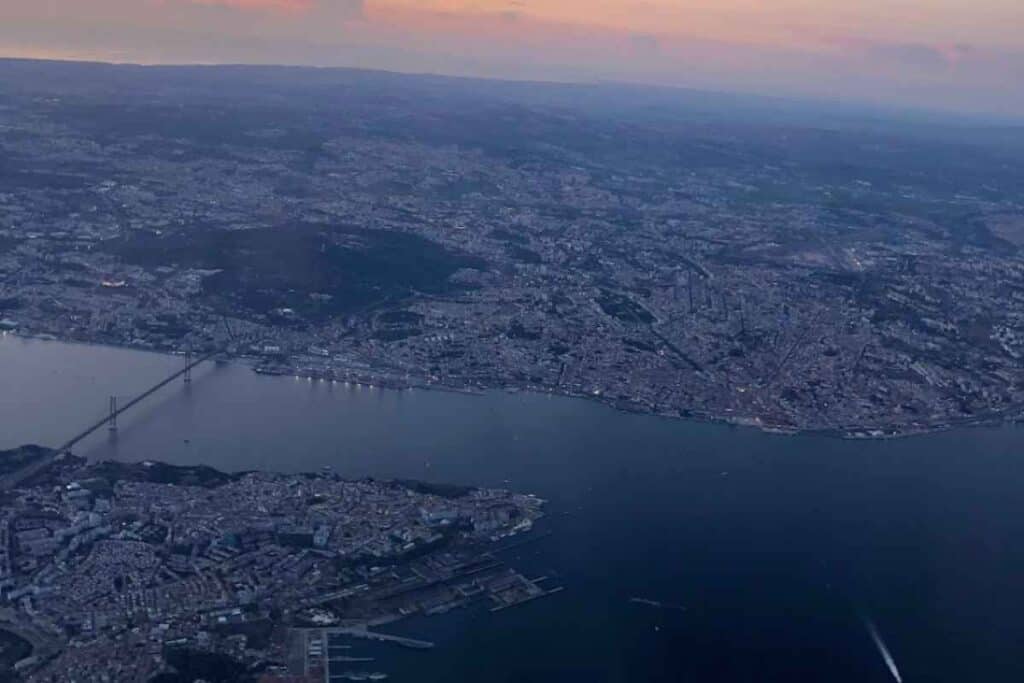
Here’s the part where most existing advice says “stay busy” or “distract yourself,” but we’re not doing that here.
Instead, try these supportive techniques to help you not only cope but also integrate your reverse culture shock experience into your life.
- Journal your thoughts. Capture what you miss, what you learned, and what feels different now.
- Connect with others who’ve experienced reverse culture shock. Online communities like Facebook groups are great!
- Infuse your home life with rituals or habits from your time abroad. Whether making your coffee the way you’d have it abroad, or taking long evening walks like in Europe, decluttering your space to reflect how you want it to feel, everything helps!
- Seek therapy or talk with a coach if the feelings are too much to handle and/or affect your everyday life.
- Allow space for discomfort. You don’t need to “get over it.” You’re not on a time crunch. You’re integrating what you’ve learned, which may take some time, and that’s ok because it’s important.
And if you want more depth and support, my Reverse Culture Shock Guide includes an in-depth guide to this emotional experience to help you feel grounded in your new expansion, at home.
There is a book that explores the themes of reverse culture shock and identity influenced by culture and travel, which has helped me tremendously, and I highly recommend it: Travel as Transformation by Gregory V. Diehl.
Gregory does a great job explaining the idea of identity and how it’s shaped by culture and the travel lifestyle, which I believe resonates with the new identity we experience when we first return home.
Being in the unknown (traveling) challenges you to restructure your life and see yourself in a way that allows you to rediscover your strengths, weaknesses, and overall awareness of self. It’s truly amazing, and so is this book!
📕 BUY Travel as Transformation here
My Experience with Reverse Culture Shock
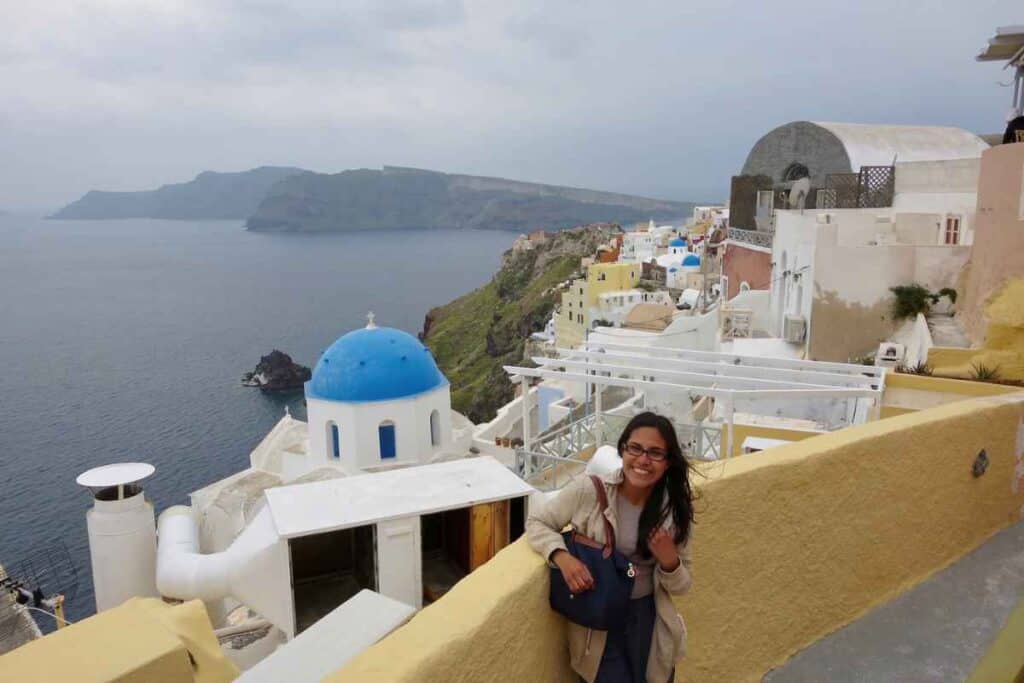
A little more on my own experience with reverse culture shock, in case you’re wondering who I am and where I’m coming from when I wrote this post.
My first real experience with reverse culture shock happened after returning from a 3-month study abroad trip through Greece. I had felt hints of it before, mostly traveling between Mexico and the U.S. as a child with my parents.
However, this time it hit deeper. Coming home from Greece felt like being dropped into a life I no longer fit into.
In Greece, I felt like I had space.
Space to reflect, learn, and just be.
I hiked to ancient ruins, gazed out at the Aegean Sea, learned about history and mythology at the site of said piece of history, and discovered what success looked like beyond the lens of hustle culture.
I gained self-confidence simply by learning how to navigate daily life in a country where I didn’t speak the language, let alone read it.
I relied heavily on my other senses, and in many ways, the experience made me feel like a toddler first experiencing life around them.
Suddenly, everything “mundane” like a grocery store or the park on a sunny day was extremely fascinating to me, which brought me to new levels of being present, unlike anything before.
Well, probably when I actually was a toddler!
That trip made me realize I didn’t want to go back to the version of life I’d left.
So I didn’t. That experience led me to move to Spain for an entire school year to teach English after graduating from college.
In Spain, I did more learning, experienced greater expansion, and experienced new levels of growth. And when I came back again? I knew I couldn’t just return to “normal.”
Those trips shaped my worldview and ultimately led to my career path.
What I do today (starting this blog, being a travel content writer) wouldn’t exist had I not gone to Greece, Spain, or the other 10 countries in between.
Which is wild to think about!
That’s why we need to talk about reverse culture shock more.
The discomfort we feel returning home is trying to tell us something, and if we listen, it can guide us toward our next chapter.
I truly believe this.
And if you’re still here reading these words, I’m willing to bet you feel the same right now.
Concluding Thoughts on Reverse Culture Shock
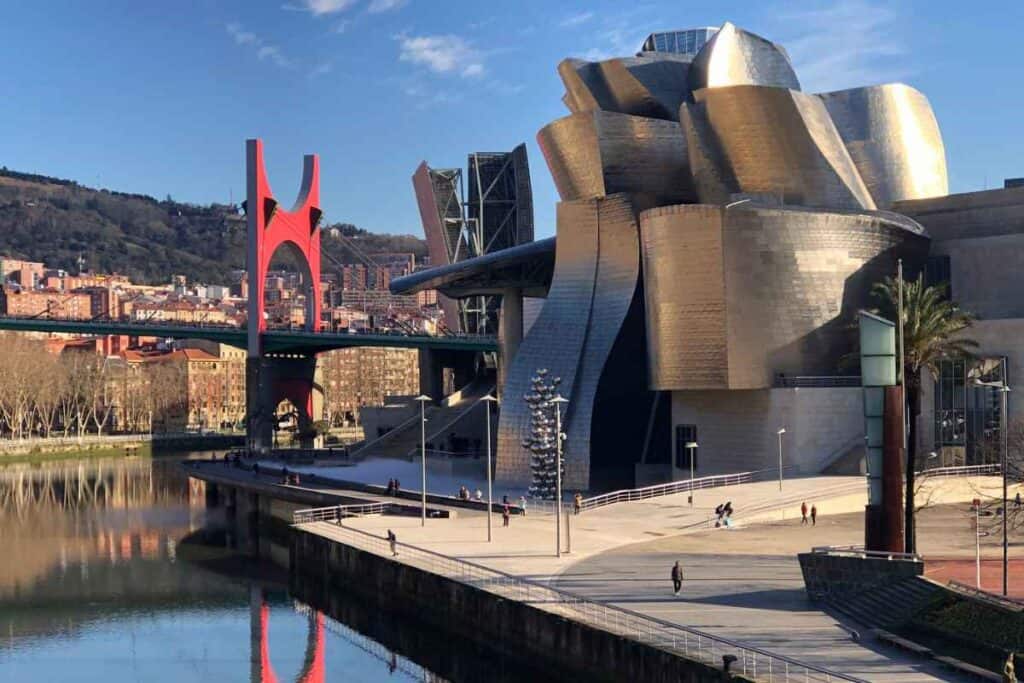
I see reverse culture shock is not a setback, but more of a beginning.
And if you’re still reading this and feeling lost, know this: it means you expanded.
Which, if you ask me, is something to celebrate and be aware of.
Now your job isn’t to shrink back to who you were just to fit back into home life. It’s time to step forward with everything you’ve learned from your travels.
If you want support along the way, check out my Reverse Culture Shock Guide.
I created this guide for travelers like you, who know there’s more to coming home than just unpacking a suitcase.
You’re not going back. You’re evolving. It’s time to honor that.
To more (reflective) travel moments like this.
